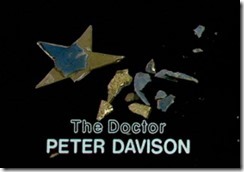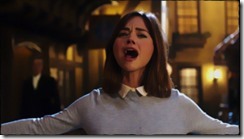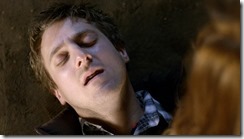I’m working on a Youtube series that will debut at the end of June 2017 called Thirteen Week Theatre about short lived TV shows, both the underappreciated gems and the absolute horrible bits of tripe.
One show I’m working for it is Saturday Night Live ‘80, the retitled, revamped version of the classic show that debuted in November of that fateful year. It took me a while to track down copies of the 12 episodes that killed Jean Doumanian’s TV career (along with those of people like Ann Risley and Charles Rocket), but I found them so I could watch them again and get some footage to work with.
At the time I was foraging for VHS copies of those 12 wpisodes I decided to seek out another little-remembered SNL season: Season 7, the first full season for Dick Ebersol and which would prove to be the second year in a row that half the cast was fired by the end of the season.
I did it mainly to seek out one particular bit: one that can’t be found online because NBC rightly polices the hell out of YouTube and because Lorne won’t allow them to have much if anything from Ebersol’s reign on Hulu or the web. A bit that I had only seen once almost 36 years ago and had stuck with me until I tracked it down tonight.
In my opinion, it’s an example of what made SNL great. Probably the greatest bit they ever did.
The official title was “An Editorial Reply,” about the week when Life and Time both had Marilyn Monroe on their covers and some telefilms were in production about her life. In reality, it’s probably known better for the refrain of the musical number. Mary Gross played Marilyn in a wonderful parody of the quintessential number from “Gentlemen Prefer Blondes.”
“If Life Magazine needs my face to sell issues, then downers are a girl’s best friend.”
I can’t confirm that it was written by Michael O’Donohugh, but if it wasn’t I’ll eat my hat and worship at the feet of whoever did write it.
This bit shows the genius that SNL had in its early years. It was edgy bordering on offensive. (The “downers” that are being sung about are supposedly books about her, but it’s also an obvious swipe at how Marilyn killed herself.) It didn’t talk down to you. It presumed that you knew the original source material that was being parodied. It presumed you knew about Marilyn, who she loved and how she died.”
“Capote! Miller! Garson Kanen! Talk to me, Norman Mailer! Tell me all about me!”
It’s brash. It’s bold. It’s 3 and a half minutes that are right on target.
“If made-for-TV films ’bout me must be written
Downers are a girl’s best friend.
And writers who write on the… men I was smitten
with… make so much dough
and write as though they really know!
“Dunaway would run away
to play me, though she’d need my rear end!
This isn’t defensive!
To me, it’s offensive!
Downers are a girl’s best friend.”
And you know what? It’s witty and funny as hell, but for those three and a half minutes there is not a single laugh to be heard. Maybe a couple of gasps when the word “downers” is first used, but no laughs.
Yet the audience goes nuts at the end. They didn’t need to laugh out loud. The wit was enough.
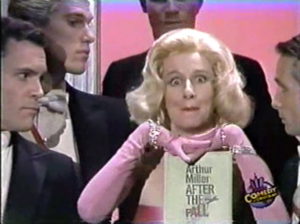 No need to pull a “Debbie Downer” and try to deliver a punch line every 20 seconds. No hammering away at a catchphrase. No condescension. The sketch refuses to play to the lowest common denominator. Who cares. It isn’t too hip for the room; if it goes over your head go laugh at the “Rubik’s Teeth” commercial elsewhere in the episode. But the more you know the funnier it is. And the wittier. And the sadder.
No need to pull a “Debbie Downer” and try to deliver a punch line every 20 seconds. No hammering away at a catchphrase. No condescension. The sketch refuses to play to the lowest common denominator. Who cares. It isn’t too hip for the room; if it goes over your head go laugh at the “Rubik’s Teeth” commercial elsewhere in the episode. But the more you know the funnier it is. And the wittier. And the sadder.
It’s the perfect example of what SNL was supposed to be. It’s just how Lorne Michaels envisioned the show.
As Lorne prepares for his annual bloodletting, firing stars who are underperforming in an effort to keep the show under budget, and trying to once again reinvent the show without reinventing it like they did in 1980 (and 1981, and 1984, and 1985, and 1990, and 1995, and… Well, I could go on) he would do best to go back and watch some of the Ebersol years. They were uneven, they relied too much on one or two cast members per season, but they did have times when they had pure genius.
Remember that the greatest sketch SNL ever did, the quintessential “edgy” yet “highbrow” moment, the sketch that best illustrated what you wanted from the show, happened while you weren’t there.
2 Comments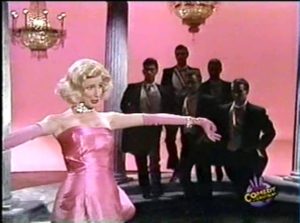
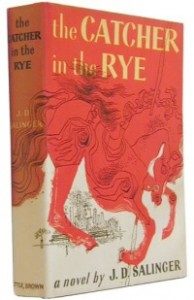 I still don’t like it.
I still don’t like it.